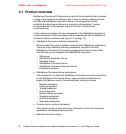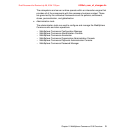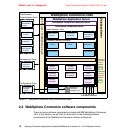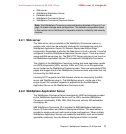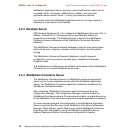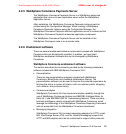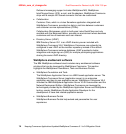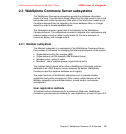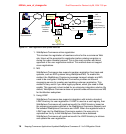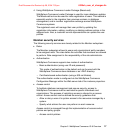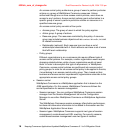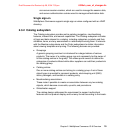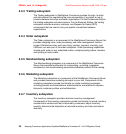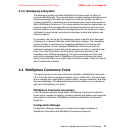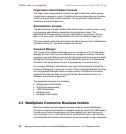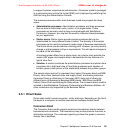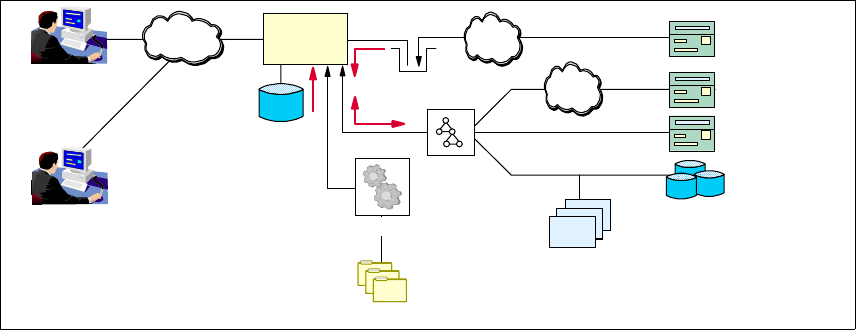
6320ch_sum_of_changes.fm Draft Document for Review July 28, 2004 7:33 pm
16 Keeping Commerce Applications Updated WebSphere Commerce 5.1 to 5.6 Migration Guide
Figure 2-2 User registration and update methods
1. WebSphere Commerce online registration
This involves the registration of members online for the e-commerce Web
site. Users will be prompted for registration before catalog navigation or
during the order checkout process. This is the most common and direct
approach of the user registration method. This method does not support
mass registrations.
2. MQ
WebSphere Commerce also supports member registration from back-end
systems, such as ERP systems using WebSphere MQ. To enable this
method, the WebSphere Commerce message transport adapter and MQ
need to be configured. WebSphere Commerce provides an inbound
messaging service for creating and updating customer registration. This
method is very useful if you have legacy systems, which you need to Web
enable. This approach is best suited for an enterprise integration solution. By
default, WebSphere Commerce does not provide outbound services over MQ
for the Member subsystem.
3. Using LDAP
WebSphere Commerce also supports integration with industry-standard
LDAP directory for user registration. If LDAP is used as a user registry, then
WebSphere Commerce will synchronize with the LDAP directory, based on
the mapping parameters defined in the WebSphere Commerce ldapentry.xml
file between WebSphere Commerce and LDAP. When the registered user in
LDAP logs into the WebSphere Commerce system, the user entry is
replicated on the fly to the WebSphere Commerce store database.
WebSphere Commerce will synchronize with the LDAP directory to retrieve
and update the user registration.
Customer
WebSphere
Commerce
instance
database
MQ
Applications
JNDI
LDAP
API
Directory
Applications
LDAP Directory
Management Tool
Legacy DB
Customer Service
Representative
Mass Loader
Mass Import Files
3a
3b
3c
LDIF
WebSphere
Commerce
MQ
12
3
4
LDAP



